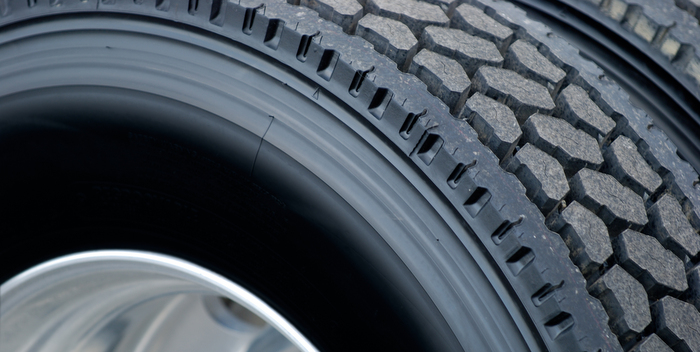Scrap tires: Where do they go now?
Not so long ago, there was a concern about what to do with truck tires once they could no longer be retreaded or repaired. Today, most of the new practices should make our industry proud. It’s taken the North American economy a while to figure out the scrap tire dilemma, but as usual, it appears

The many faces of a truck tire
Much has been written about the different functions performed by modern truck tires. In fact, automotive engineers have often referred to the pneumatic tire as the single most complex component on a vehicle. This may be challenged, today, by the increasingly complex electronic control devices designed to interface multiple drivetrain components, but tires are certainly

Are valve caps the next buggy whip?
For decades, two of the top recommendations from truck tire engineers for long tire life and casing durability have been to maintain proper inflation pressures for the loads being carried and to use sealing metal valve caps. Valve caps, however, have been one of those constants that, while highly recommended, have not always been fully

Axle-specific trailer tires are likely to change
You’ve heard the old saying: “The only constant is change.” That has certainly been typical of our industry. Witness trailer skirts, new lube oil formulations and DEF tanks, and, of course, escalating equipment costs for these new complexities. Every so often, it’s refreshing to see an innovation that has a realistic promise of a quick

Improved truck tire productivity requires maintenance
The continuously rising costs of labor, fuel, equipment acquisition, added regulation and beyond brings intense pressure on improving productivity to remain cost competitive. Let’s concentrate on hardware maintenance for a moment and think about how some recent and proposed productivity enhancements. Automatic tire inflation systems (ATIS) have recently become popular and are currently specified on

Downtime for tires
Our industry is keenly focused on efficiency improvements. One primary goal is maximizing uptime of both equipment hardware and human assets. Make no mistake in recognizing that modern truck tires are designed and manufactured to be used—the more constantly and consistently the better. Selecting tires that are optimized for the intended service conditions and maintaining

The value of takeoff tire inspection
All good tire management programs include close monitoring of scrap tires—those tires that are no longer serviceable either as partially worn new tires or retreads—or casings that are no longer acceptable for retreading. There are many specific reasons that can render a truck tire as “scrap.” Nearly all of these are detailed, along with descriptions,

Tire safety first—and make it last
The word “safety,” and certainly detailed discussion about tire safety, usually quiets meetings and tends to put serious expressions on most faces—as it well should. Truck tire servicing can be very dangerous, even fatal. Tire mounting, demounting, jacking, and securing vehicles for tire/wheel servicing injure or kill technicians with surprising frequency. Sadly, nearly all of

Tire thoughts about future trucks
Since tires represent such a large expense for truck operators (normally the second largest non-labor cost behind only fuel), considerable thought is given to tires of the future; specifically, on ways to improve operating efficiencies influenced by tires. I’d like to share some admittedly subjective thoughts, based on my 50 years spent in this area.

How drivetrain options impact tire performance
There’s lots of talk about coming changes in high-speed linehaul driveline technology. The new trend, referred to as “downspeeding,” follows the “gear fast/run slow” technology and later iterations of increasingly sophisticated engine fuel management and gearing systems. In the quest for fuel economy, technology allows heavy-duty highway engines to generate high levels of torque at

A question of truck tire balance
The issue of tire/wheel assembly balance has been debated for decades. Several significant changes have influenced these discussions, which resulted in changes to maintenance policies and, in some cases, later reversals of these policies. Historically, the goal has been to use balancing to prevent or solve complaints of truck ride, vibration and even wheel hop.

Tire noise: Sounds of (almost) silence
If you’ve been an observant motorist for 20 years or more, you may remember when truck tires were noisy. Much has changed in recent years and one benefit of modern tire technology is that linehaul radials are now almost universally quiet—to the point that the noise generated by rolling down the interstate under load is

